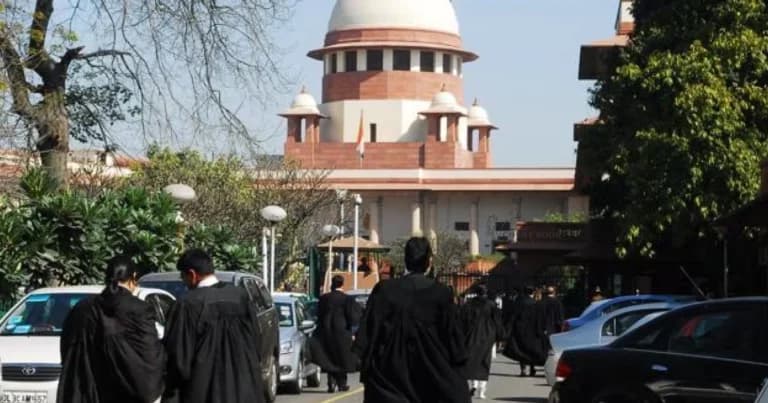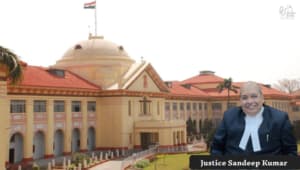The Supreme Court today (February 3) directed the Commission for Air Quality Management (CAQM) to hold a meeting with officials from Punjab, Haryana, and Uttar Pradesh. This meeting will focus on crop diversification, in-situ and ex-situ crop residue management, and mass awareness programs to address the issue of stubble burning by farmers.
A bench comprising Justice Abhay Oka and Justice Ujjal Bhuyan was hearing the M.C. Mehta case, which deals with pollution management in Delhi-NCR. The case covers issues such as vehicular pollution, solid waste management, and stubble burning in NCR states.
Previously, the Supreme Court had expressed concerns over the Punjab and Haryana governments not enforcing CAQM orders regarding stubble burning. The Court also emphasized that officials failing to curb stubble burning should be penalized.
Crop diversification involves growing multiple types of crops on the same land to reduce dependence on a single crop.
In-situ crop residue management: Leaving crop residues in the field to decompose naturally instead of burning them.
Ex-situ crop residue management: Reusing crop residues for purposes such as fuel, compost, or animal fodder instead of burning them.
Senior Advocate Aprajita Singh (Amicus Curiae), Additional Solicitor General Aishwarya Bhati (representing CAQM), and representatives from the Central Government’s Agriculture Department submitted detailed notes on paddy straw management.
"We direct CAQM to hold a meeting with representatives from Punjab, Haryana, and Uttar Pradesh. These states must submit their responses on the matter. Based on their feedback and discussions, CAQM will provide its own recommendations." – Supreme Court
Read Also:- Delhi High Court Reserves Verdict on Petitions Against '2020 Delhi' Film Release
CAQM is required to submit its recommendations by March 17, after which the Court will issue directions on March 28.
The counsel for the Punjab government argued that for crop diversification to be successful, farmers must be given two forms of incentives:
Minimum Support Price (MSP)
Minimum Assured Procurement: Currently, 100% of paddy produce is purchased by the Food Corporation of India (FCI). If a similar policy is introduced for other crops, farmers will voluntarily adopt crop diversification.
Read Also:- Delhi High Court Directs DSLSA to Enhance Monitoring of Legal Aid Counsel Appearances in District Courts
The Supreme Court directed that this proposal should also be discussed in the CAQM meeting.
Punjab's Advocate General (AG) Gurminder Singh informed the Court that Punjab is committed to eliminating stubble burning, but Delhi’s air quality index (AQI) has not improved.
"After November 15, no stubble-burning incidents were recorded in Punjab, yet Delhi's AQI reached 400. Even in January, the situation has remained severe. Is Punjab solely responsible for this?" – Punjab Government
To this, Justice Abhay Oka responded:"You are right, we cannot blame only one state."
Read Also:- Delhi High Court Asks NIA to Respond to MP Engineer Rashid’s Interim Bail Plea in UAPA Case
The Supreme Court found that financial aid meant for daily wage laborers, who lost work due to halted construction activities in Delhi-NCR, was not properly disbursed by several states.
Uttar Pradesh government paid the lowest amount (₹1000 per worker) but covered the largest number of workers.
Haryana government provided aid to approximately 400,000 workers.
Delhi government initially paid 92,000 workers and later included 2,700 more.
The Court directed that the Chief Secretaries of Uttar Pradesh, Delhi, and Haryana must personally appear in court.















